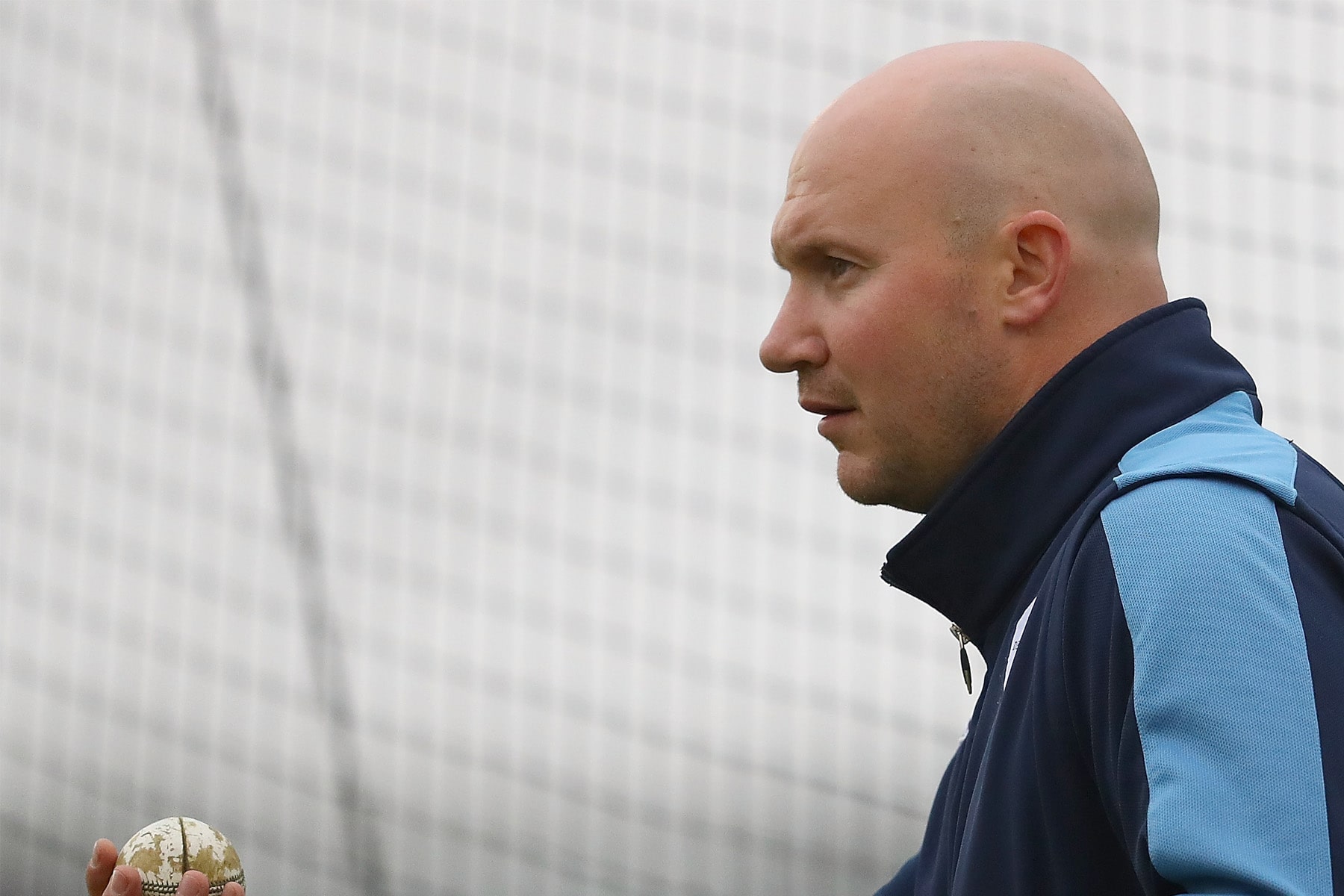PCA PRESS RELEASE
John Sadler discusses his merit in Masters in Sports Directorship.
To see more articles, click here
Current Northamptonshire Assistant Coach John Sadler has recently completed his Masters in Sport Directorship alongside developing his coaching career after moving down the M1 from Leicestershire.
The 38-year-old who is a two-time winner of the English T20 competition as a player for the Foxes retired at the end of 2010 after a short spell at Derbyshire. Sadler re-joined Leicestershire in 2017 as Second XI Coach, which helped to inspire career exploration.
PCA Lead Personal Development Manager Charlie Mulraine supported Sadler through his Masters and has spoken to him about his motivation, juggling education with the ‘day job’ and the future…
- CM: After two years of study, you’ve completed your Masters in Sport Directorship from Manchester Met. How does that feel?
- JS: I feel a range of different emotions to be honest. It’s very rewarding to have passed such a long and challenging course, I do feel a sense of relief that it is completed, but I suppose the main emotion is a genuine sense of achievement. At the start of the course, I felt massively out of my comfort zone, and for two years there was always a deadline or an assignment hanging over me, so to have it behind me now is nice feeling.
- CM: When did you get your final result?
- JS: I have just received my final result and the certificate came through the post. Knowing I had passed with merit is a nice feeling but receiving the certificate made it all official, I’ll definitely be getting that framed.
- CM: What motivated you to consider the course in the first place?
- JS: I remember self-reflecting during a Second XI fixture the summer before I enrolled and it really hit me that I needed to feel I was moving forward with my career. I wanted something that would help me learn and grow within cricket but also something that could open potential doors outside of the cricket world should I ever need them. I know from my own experiences, as a player and a coach, how fickle professional sport can be and I wanted to stay ahead. I remembering calling yourself at that time wanting to discuss my thoughts with you, and fortunately you were already on your way over. We sat down, had a chat, and the ball was rolling.
- CM: What were the thoughts and feelings that were initially holding you back from applying?
- JS: There were a number of things such as cost, the added time I was going to be away from my family and how was I going to make the time to do it alongside my coaching role. A big thing was also feelings of self-doubt. I remember thinking to myself “Am I able to operate at Masters level?” It felt very daunting.
- CM: How did you overcome these doubts?
- JS: The conversation you and I had put my mind at rest. I remember saying it was a non-starter at the time, especially with the financial aspect, but I remember you saying not to worry about the cost, the important thing was to be honest about whether I really wanted to do the course and you said we’ll find a way to make it work financially. I spoke with Mark Chilton and Ashley Giles, who had already completed the course, and the more I looked into it and spoke to people the more I felt it was perfect for me.

- CM: How does making an investment of this kind affect you?
- JS: It made me appreciate that sometimes we can take things for granted. Being in the professional sport industry we can come to expect things are done for us, things like pre-season tours or other events we get to enjoy in the cricket world. When you make this level of investment in yourself it changes your mindset, you subconsciously have to get more out of it. With a student loan alongside some personal savings, and help from the PCA, which I am hugely grateful for, this course has been possible.
- CM: Did your own transition out of the game drive this need to continue to develop?
- JS: My transition from being a player definitely affected my thinking. I don’t want players to be in the position I was in then, no job, no qualifications and limited work options. Most young players when they enter the sport, believe they’ll enjoy a long successful career and I hope that they will. The reality is that many won’t and therefore I try to encourage them to take a course, get a qualification, however small, and get the ball rolling towards having a trade behind them. This will not only help them with their cricket but also give them some comfort knowing they have something to fall back on if they fail to reach the heights they strive for in cricket.
- CM: Does this experience motivate you now?
- JS: Yes, absolutely. Regardless of how things are going, I will never again take for granted how quickly things can change, either way. Having the experience of tough times always allows for some clear perspective. Since nothing in life is certain, I think back to these times and even as a coach it helps to create a sense of urgency to keep working hard, but also a feeling that I now have options. My family and I went through some tough times, and I am incredibly grateful for their support. These experiences have given me a good perspective on life and the job I feel privileged to do.
- CM: At what point during the course did you start to feel comfortable?
- JS: I felt more at ease after passing the second assignment. The first unit was about leadership which in some ways felt like a bit of a ‘refresher’ because of the high quality of content from the ECB Level 4 course I did back in 2013. The second unit was an insight to the business world and how to lead high performance organisations, focussing on diagnostics and business strategy, it was quite daunting. To get a pass for that unit, and to successfully write in a more academic format, I then started to sense that I was going to be ok and I could cope at this level.
- CM: How did you balance your coaching role with the course?
- JS: This was a challenge! Every time I was set an assignment, I said to myself that I would start early, plan it out and regularly chip away at it little and often, but that didn’t happen once. A sense of urgency always kicks me into gear and when deadlines were fast approaching, sometimes I would work through the night. On away trips, I’d lock myself in my room and study till 3am and then get up early to squeeze in another hours work before breakfast. When you need to, you find a way to get the work done.
- CM: What have you taken away from the course?
- JS: Increased confidence and greater self-awareness. I’m really confident that I can find a solution when faced with challenges. On a practical level I have a much better appreciation of the business side of sport. A Sports Director has to have a foot in both camps. They need an understanding of the business aspect such as budgets, strategy and succession planning, and also an understanding of the game itself, with empathy for the players and an appreciation of what they go through. The course has also given me knowledge of how a boardroom can sometimes operate, the communication skills needed at Executive level and a greater understanding of governance.
- CM: Words of wisdom for players or coaches who are considering the same or similar course?
- JS: The important question for them to ask is ‘why?’ Why do they want to take the course, what’s the outcome they want? If a course suits these reasons then go for it! Start with the end in mind, understand why you want to do it, and then commit fully! And also – use the PCA throughout. They are there to help and they helped me massively. I’ll take this opportunity to thank the PCA for their support and for the conversations we had because without all this I wouldn’t have been able to do the course.
Click here for more information on the PCA’s Personal Development and Welfare Programme or contact your regional Personal Development Manager.















